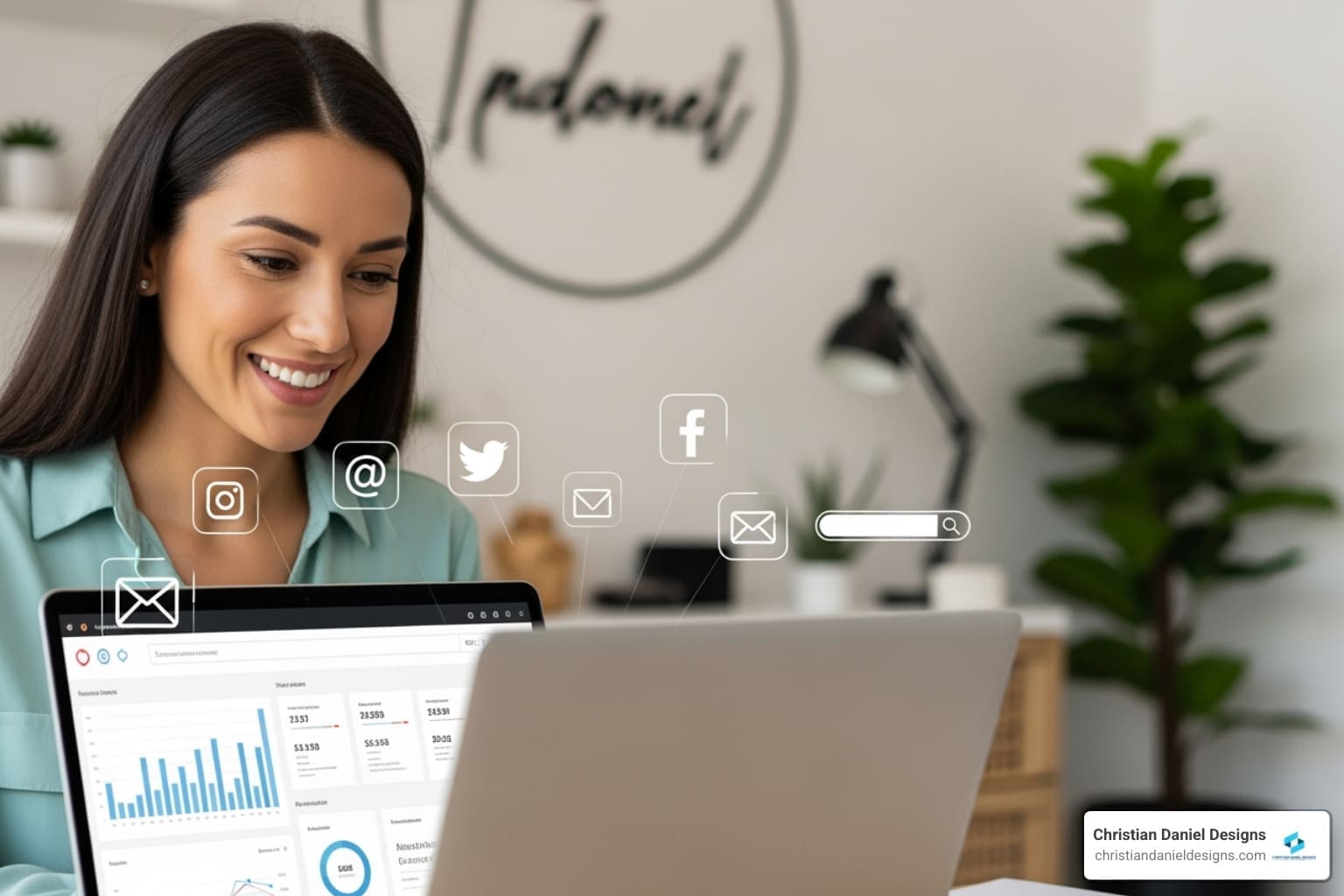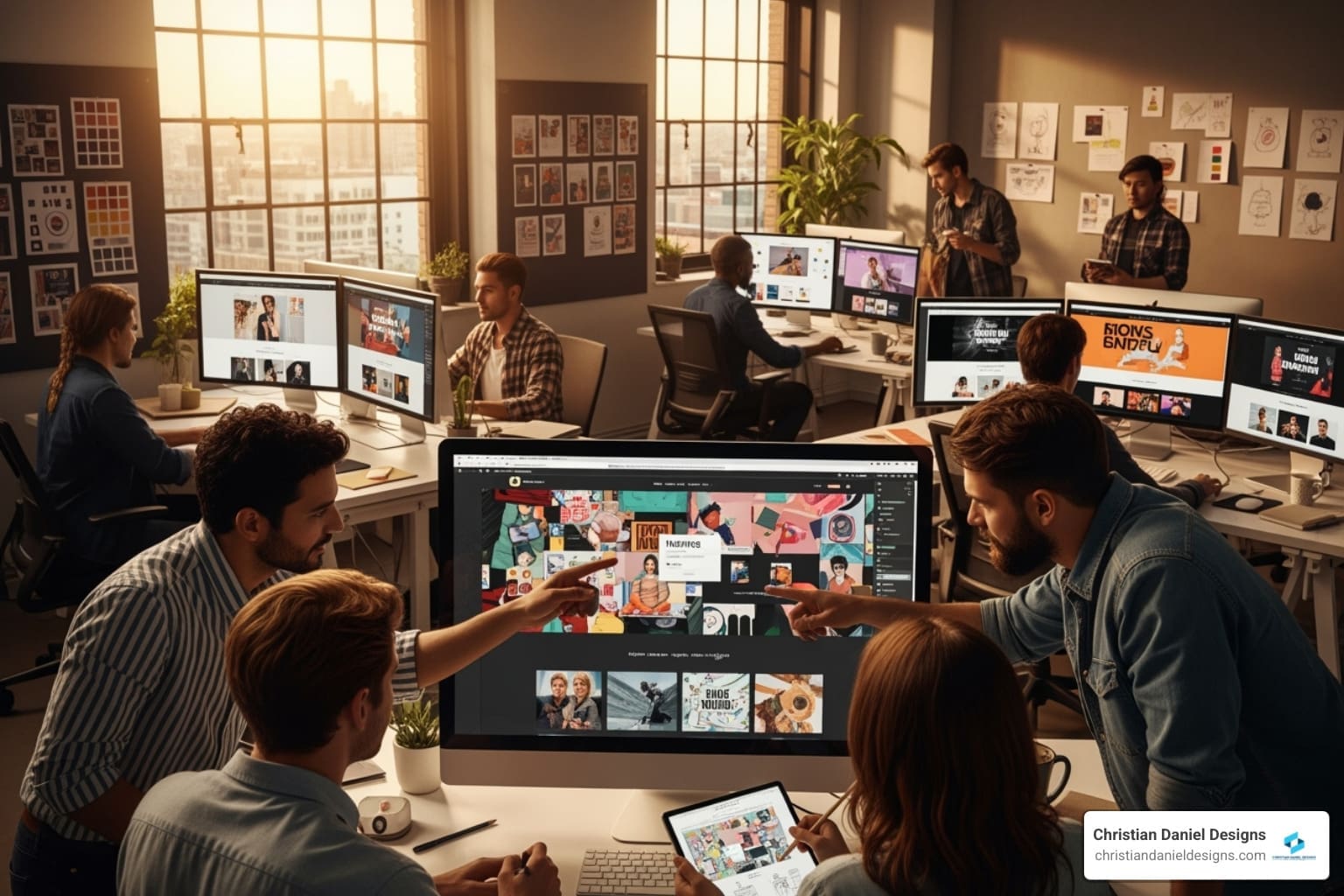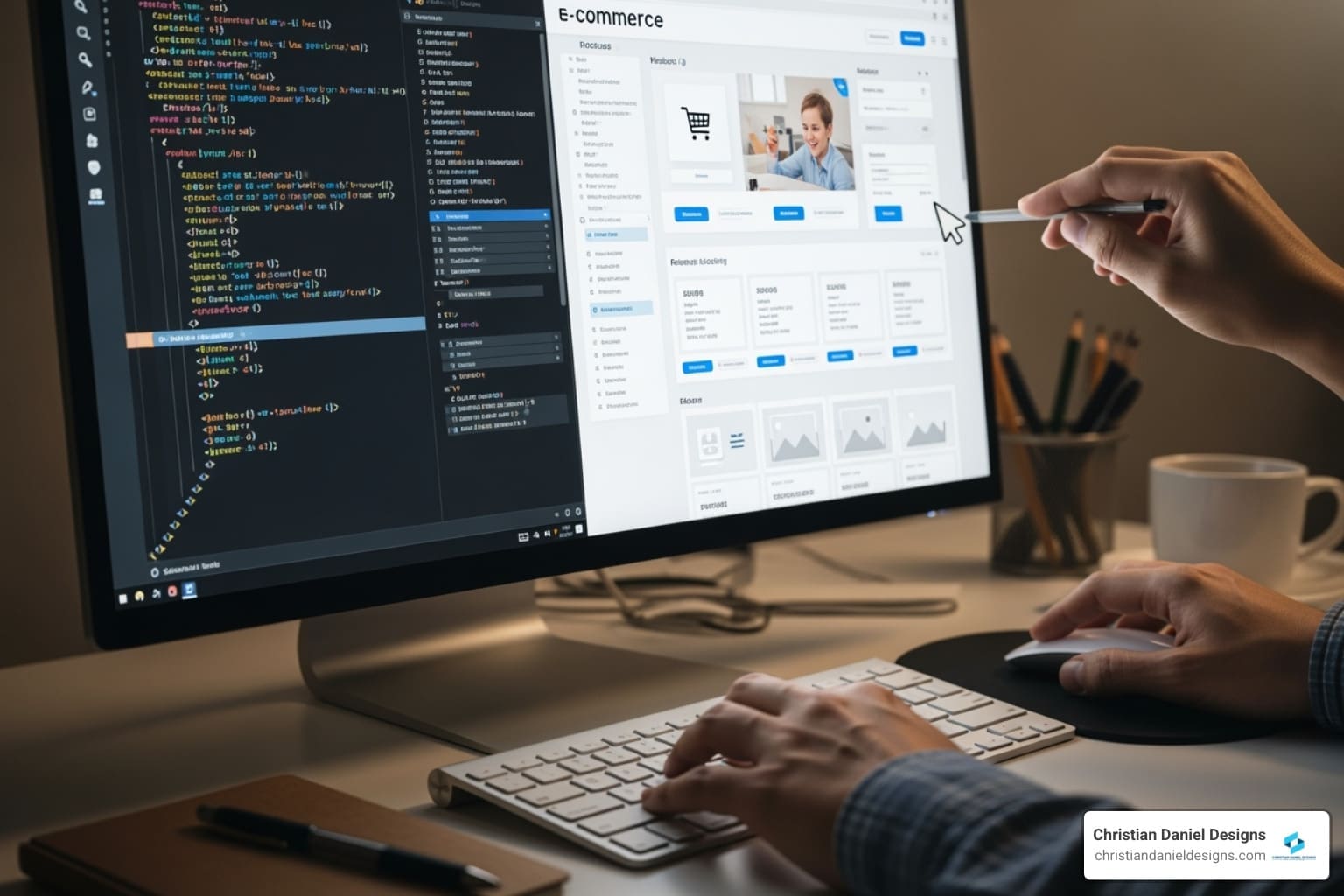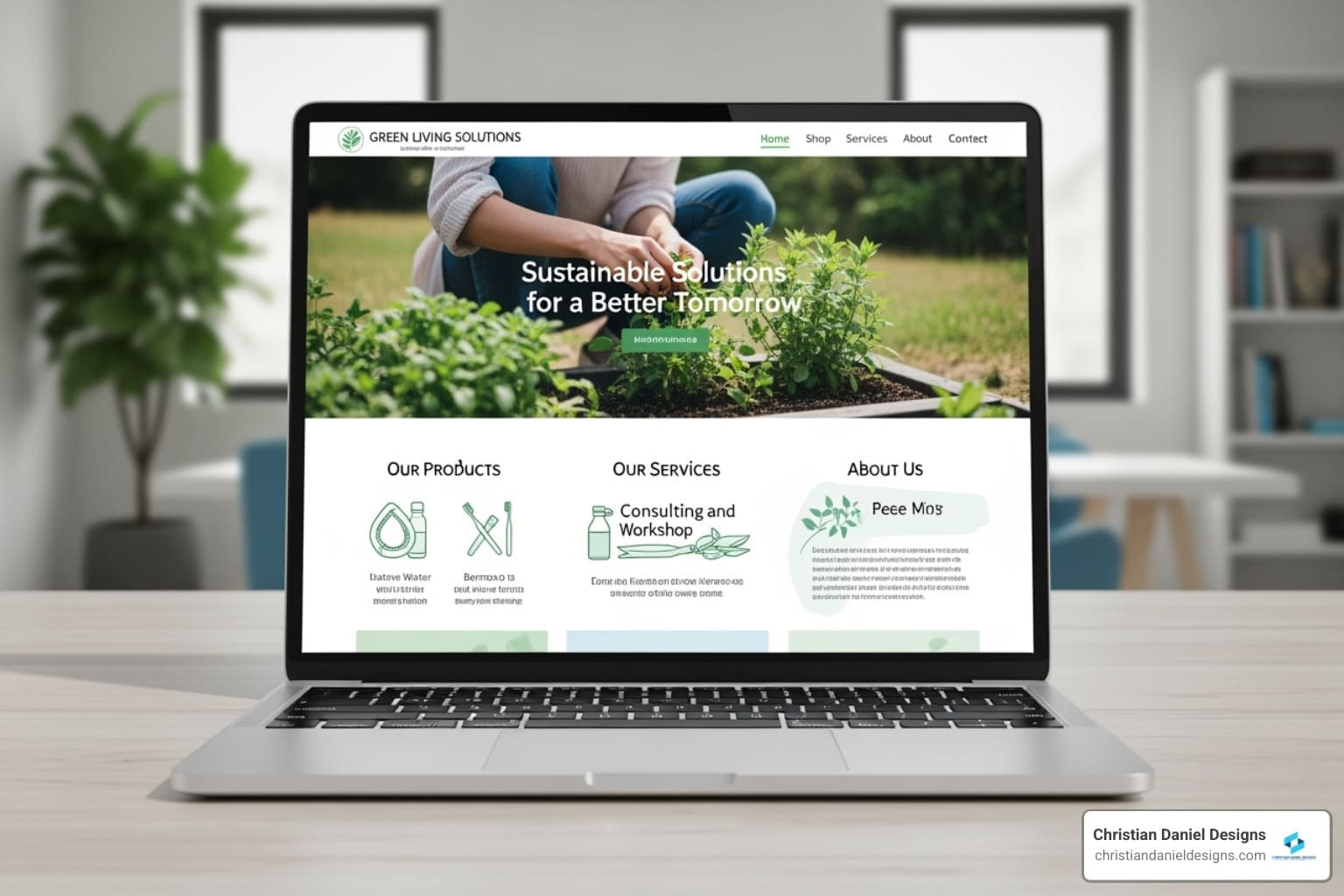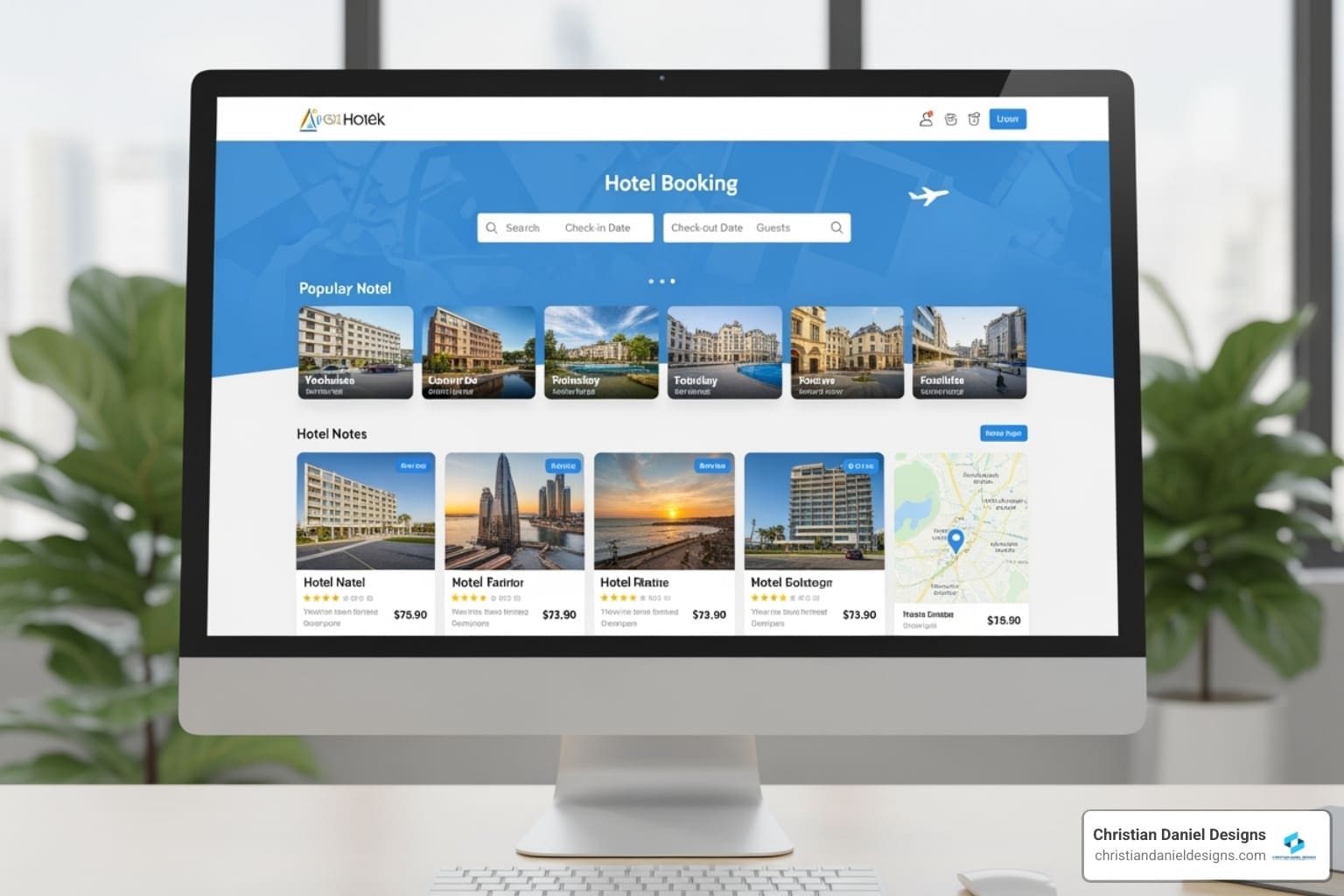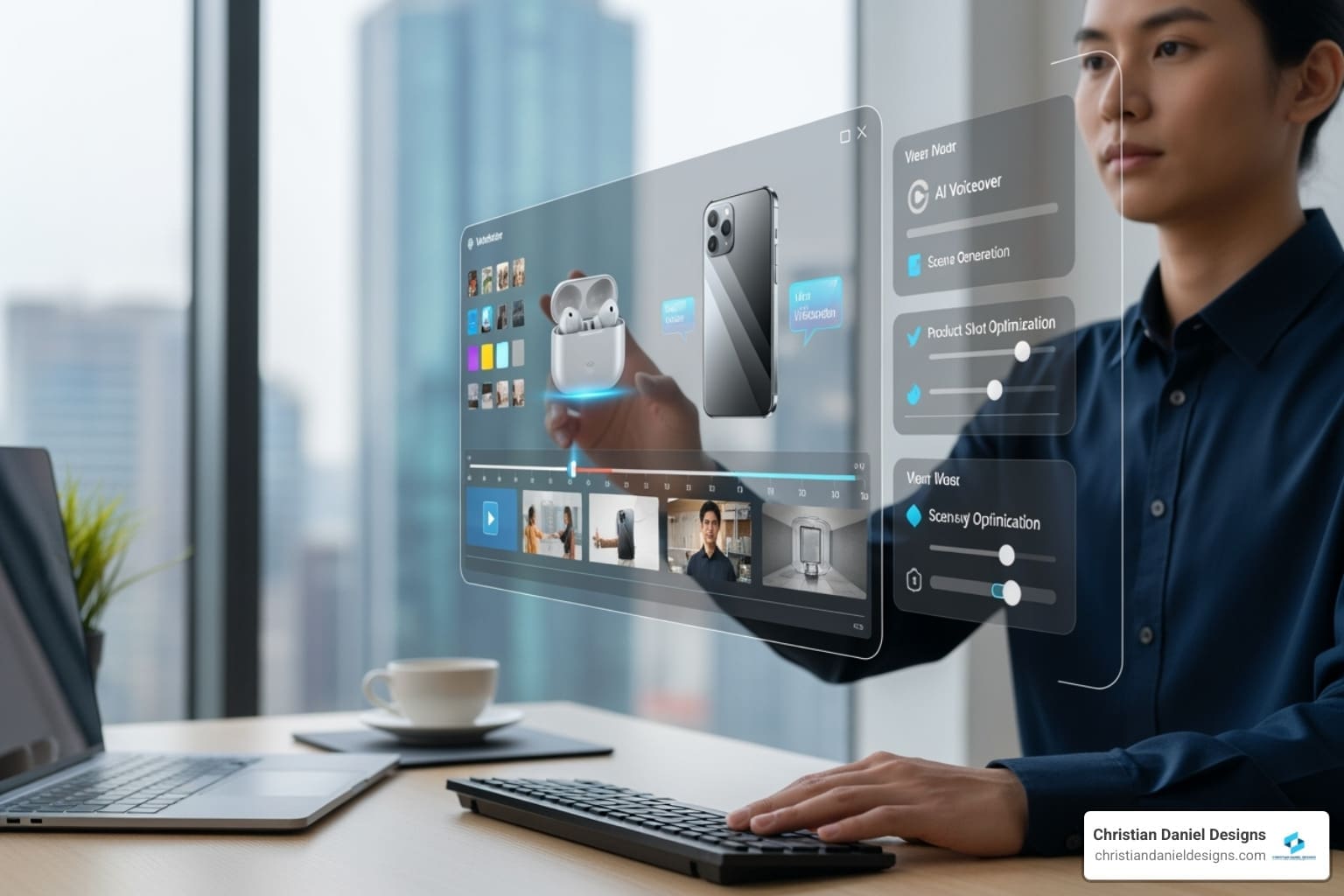Small business online marketing: Unlock Growth 2025
Why Small Business Online Marketing Matters More Than Ever
Small business online marketing is the process of using digital channels—like search engines, social media, and your website—to reach local customers. Here are its core components:
- Professional Website: Your digital storefront.
- Local SEO: Getting found in local searches.
- Social Media: Building a community.
- Email Marketing: Nurturing leads and engaging customers.
- Online Reviews: Building trust and credibility.
- Paid Advertising: Reaching customers with targeted campaigns.
Quick Stats:
- 46% of Google searches are for local information.
- 28% of local searches result in purchases within 24 hours.
- 92% of searchers pick businesses on the first page of results.
The digital landscape has changed how customers find businesses. Your competitors are online, so the question isn’t if you need a digital presence, but how to make it work for you.
As a small business owner, you’re an expert in your craft, not marketing. But even the best businesses struggle without being found online. I’m Christian Daniel, and for over two decades, I’ve helped businesses transform their digital presence with strategic web design and video marketing. My work in small business online marketing has generated millions in revenue for clients by combining conversion-focused websites with targeted content.
Let me walk you through how to build an online marketing system that works, without the overwhelm.
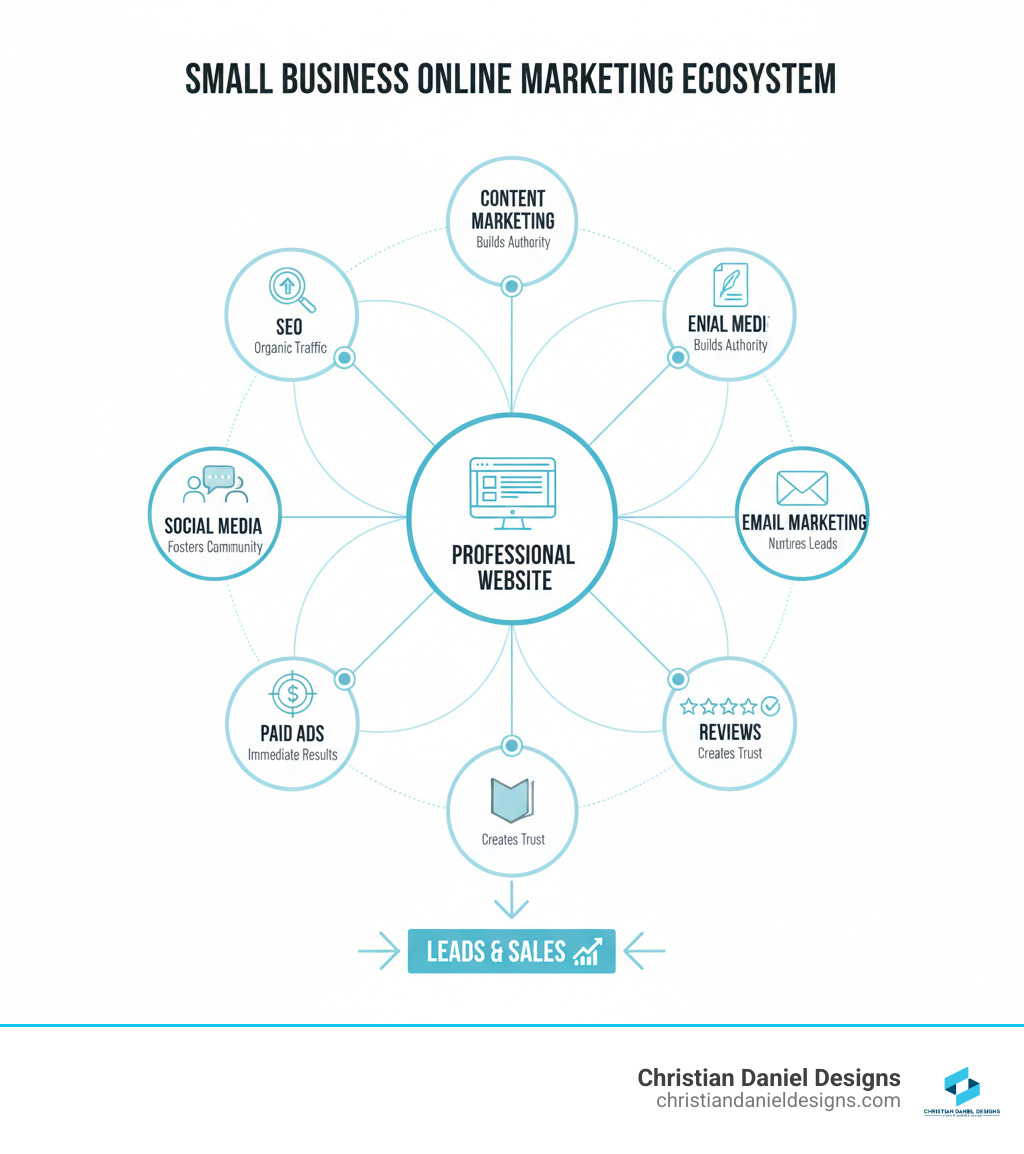
Small business online marketing glossary:
Laying the Groundground: Your Marketing Plan and a Website That Converts
Before launching any campaign, you need a solid foundation. Think of small business online marketing like building a house: your marketing plan is the blueprint, and your website is the foundation. Skipping these steps leads to wasted effort and burnout.
Creating Your Essential Marketing Plan
Start with a simple, working plan that guides your decisions. It should answer these key questions:
- What are your goals? Be specific. Instead of “get more customers,” aim for “increase online bookings by 20% in six months.” Use the SMART goals framework (Specific, Measurable, Achievable, Relevant, Time-bound).
- Who is your audience? Create detailed buyer personas. Knowing your ideal customer—their problems, their needs—helps you tailor your message effectively.
- Who are your competitors? Research what they do well and where they fall short. This helps you define your Unique Selling Proposition (USP)—what makes you the better choice.
- Which channels will you use? You don’t need to be everywhere. Choose platforms where your target audience is active. A B2B consultant might use LinkedIn, while a restaurant might focus on Instagram and Google Business Profile.
- What is your budget? I recommend allocating 5-10% of revenue to marketing. This is an investment in growth.
- What is your content plan? Decide what valuable content (blog posts, videos) you’ll create to attract and engage your audience. Consistency is key.
- How will you measure success? Set quarterly checkpoints to review what’s working. The 8 Steps to a Digital Marketing Strategy from the Digital Marketing Institute offers a deeper framework.
Why Your Website is Your Most Important Asset
Your website is the most important piece of your digital presence. Here’s why:
- First impressions are instant. A dated or broken website costs you business. 88% of visitors won’t return after a bad user experience.
- You own it. Unlike social media platforms, your website is your digital real estate. No one can change the rules or limit your reach.
- It’s your marketing hub. All other channels—social media, email, ads—drive traffic back to your site. This is where you convert visitors into customers, which is why I focus on Conversion-Focused Web Design.
- It must be mobile-friendly. Over half of all web traffic is mobile. A site that isn’t fast and easy to use on a smartphone alienates half your potential customers. My Designing Small Business Website Guide shows how to get this right.
- User experience (UX) and security are crucial. An intuitive, secure site builds trust. Regular Website Security Audits are essential.
While a free website through your Google Business Profile is better than nothing, a professionally designed site pays for itself many times over. My Web Design Small Business Guide 2025 covers how to make that investment count.
The Engine of Growth: Mastering SEO, Content, and Social Media
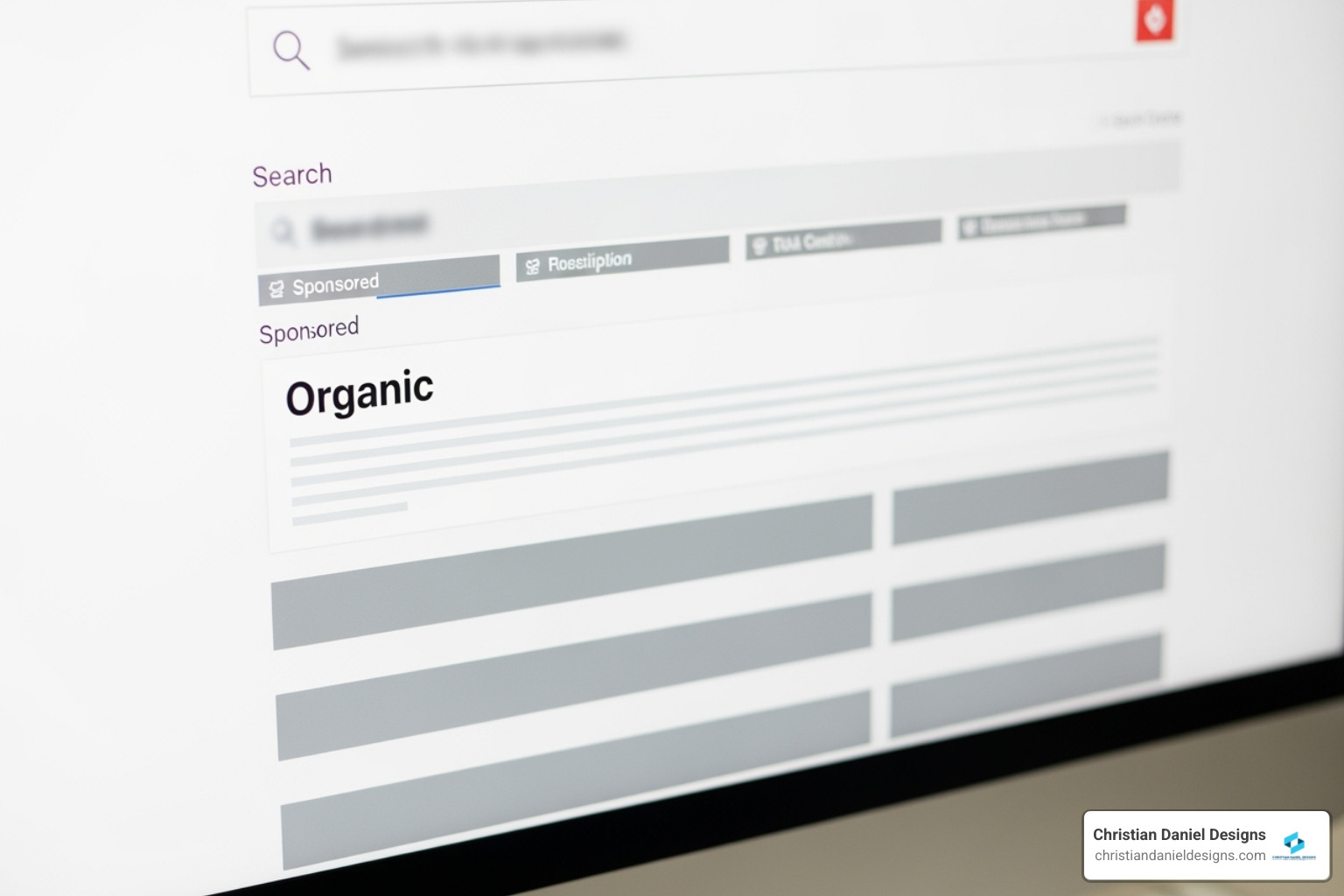
With a solid plan and website, it’s time to fire up the engine of small business online marketing. This is how you attract customers, build authority, and foster a loyal community. Your website is the storefront; SEO, content, and social media are what bring people through the door.
Implementing Search Engine Optimization (SEO) for Small Business Online Marketing
SEO makes you visible when customers search for businesses like yours. Since 92% of searchers pick businesses on the first page, being there is critical. For local businesses, local SEO is a game-changer.
- Keyword Research: Identify the phrases your customers use, including local terms like your city or neighborhood (e.g., “Italian restaurant Brooklyn”).
- On-Page SEO: Use your keywords naturally in page titles, headings, and content. Create high-quality content that includes local information to signal your relevance to search engines.
- Google Business Profile: This is your top priority for local search. Claim and completely optimize your free profile. Fill out every section, add photos, and respond to all reviews. With 46% of Google searches being for local information, an optimized profile is essential.
- NAP Consistency: Ensure your Name, Address, and Phone number are identical across your website, social media, and all online directories. Inconsistencies hurt your local rankings.
- Backlink Building: When other reputable sites link to yours, it signals trustworthiness. Start by getting listed in relevant online directories.
An effective local strategy can significantly boost your visibility. My How to Attract Website Visitors guide digs deeper into these tactics.
Using Content Marketing to Become an Authority
Content marketing is about helping, not selling. By consistently providing valuable information, you build trust, showcase expertise, and turn casual visitors into loyal customers.
- Blogging: A business blog allows you to answer customer questions, share expertise, and target new keywords, driving organic traffic.
- Video Marketing: Video is incredibly engaging and connects on an emotional level. Use it for product showcases, testimonials, or behind-the-scenes content. My Small Business Video Marketing approach has generated millions for clients. My Small Business Video Content Guide provides actionable tips.
- Answer Customer Questions: The simplest strategy is to create content that directly addresses what people are asking. This helps your audience and improves your SEO.
Leveraging Social Media to Build a Community
Social media is about building relationships, not just broadcasting messages. It’s a massive opportunity for small business online marketing.
- Choose Platforms Wisely: Don’t try to be everywhere. Focus on one or two platforms where your audience is most active, like Instagram for visual businesses or LinkedIn for professional services.
- Be Consistent: It’s better to post high-quality content a few times a week than to post sporadically. A content calendar helps.
- Create Engaging Content: Mix it up with behind-the-scenes glimpses, customer testimonials, helpful tips, and polls. Show your brand’s personality.
- Encourage User-Generated Content: Reshare customer photos or videos (with permission). This is powerful social proof.
- Engage Actively: Respond to every comment and message. Engagement is a two-way street.
According to Forbes social media statistics, 77% of businesses use social media. Focus on genuine interaction over follower counts; a small, engaged community is far more valuable.
Nurturing and Converting: Email, Paid Ads, and Online Reviews
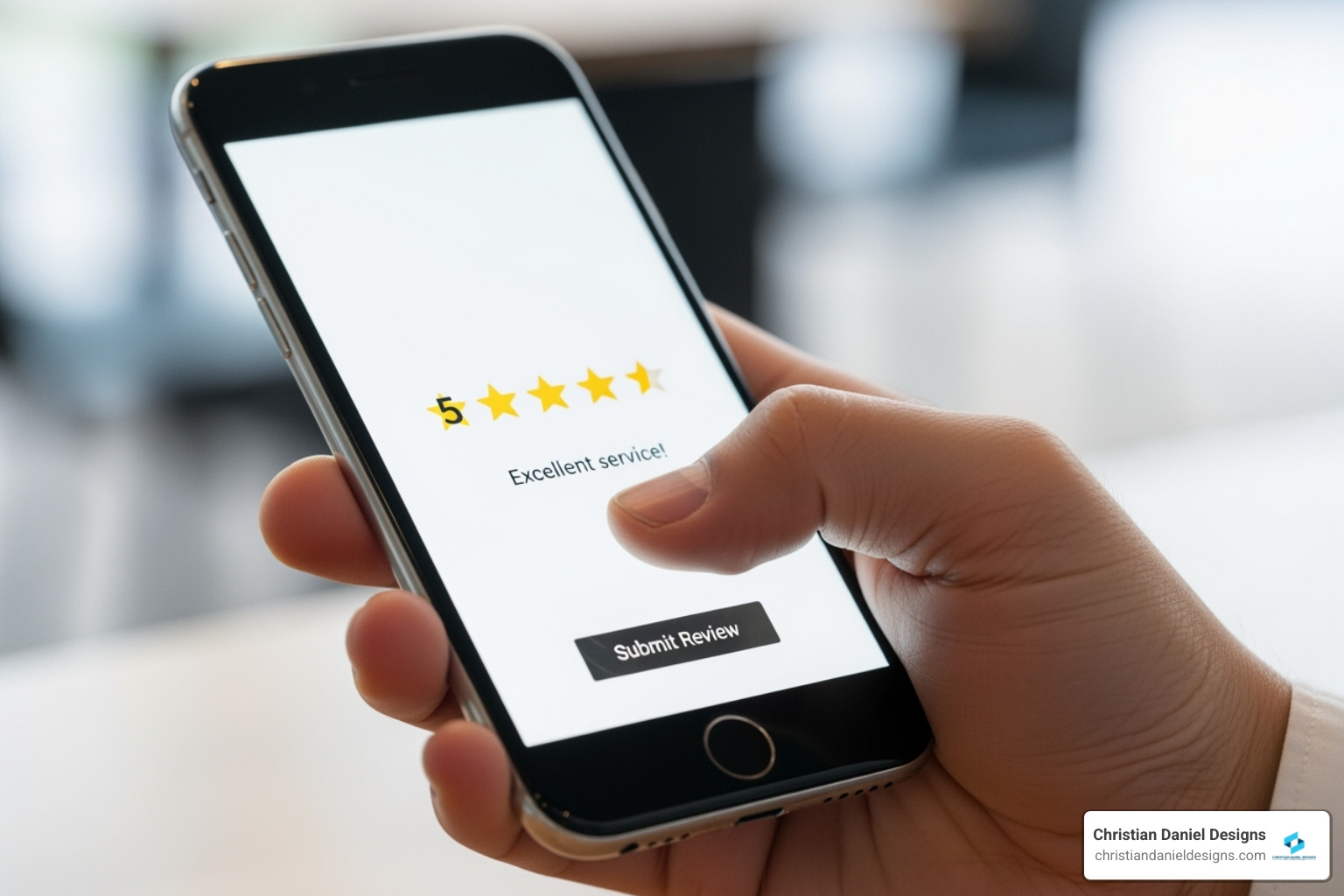
You’ve attracted visitors; now it’s time to turn them into customers. This phase of small business online marketing is about closing the loop from attraction to conversion, ensuring you don’t lose potential customers.
The Power of Email Marketing for Small Businesses
If you’re not building an email list, you’re leaving money on the table. Email marketing delivers an impressive $36 for every $1 spent. It’s a direct line to your customers that you own, unlike social media.
- Build Your List: Offer something valuable (a lead magnet) like a discount or free guide in exchange for an email address. Place sign-up forms on your website.
- Nurture Leads: Follow the 80/20 rule: 80% helpful content, 20% promotional. Share valuable information that helps your audience.
- Personalize and Automate: Segment your list to send custom content. Set up automated welcome emails or abandoned cart reminders to work for you 24/7.
- Content Ideas: Send exclusive promotions, monthly newsletters, helpful tips, and behind-the-scenes stories. Always include a clear call to action.
Reaching Your Audience with Paid Advertising (PPC)
While organic strategies build long-term growth, paid ads provide immediate visibility. They are a great supplement to your foundational SEO and content efforts.
- Google Ads: Puts you at the top of search results for specific keywords, reaching people actively looking for your services. Use location targeting to reach local customers.
- Social Media Ads: Platforms like Facebook and Instagram offer precise targeting based on demographics, interests, and behaviors. This is highly effective for reaching niche audiences.
- Budget Control: You set your spending limit and only pay when someone clicks. Start small—even $10 a day can yield results with sharp targeting.
- When to Use PPC: It’s ideal for launching products, promoting time-sensitive offers, or competing in crowded markets. Expect to test and optimize for 2-4 weeks before campaigns become consistently profitable.
The Critical Role of Online Reviews
93% of consumers read online reviews before making a purchase. Reviews are essential for building trust and are a critical part of small business online marketing.
- Build Social Proof: Positive reviews act as powerful word-of-mouth referrals, encouraging potential customers to choose you.
- Encourage Reviews: Actively ask satisfied customers to share their experience. Make it easy by providing direct links to your Google Business Profile or Yelp page.
- Respond to All Reviews: Thank customers for positive reviews. For negative reviews, respond politely and professionally. Acknowledge the concern and offer to resolve it offline. This shows you care about customer satisfaction.
- Manage Your Reputation: Regularly monitor what people are saying about you online and address issues quickly. Your online reputation directly impacts your bottom line.
Measuring Success and Choosing Your Path
The great thing about small business online marketing is that you can measure what’s working. Data allows you to make smart decisions with your time and money instead of guessing.
How to Measure Your Small Business Online Marketing ROI
Don’t spend money on marketing without checking if it’s helping your bottom line. Track these key metrics:
- Website Traffic: Use Google Analytics to see how many people visit your site and where they come from (search, social media, ads).
- Conversion Rate: This is the percentage of visitors who take a desired action (e.g., fill out a contact form). This is more important than traffic alone.
- Cost Per Lead: Calculate how much you spend to acquire each lead. This helps you identify your most efficient marketing channels.
- Customer Lifetime Value (CLV): Understand how much revenue an average customer generates over time. This informs how much you can afford to spend on acquiring them.
- Social Media Engagement: Likes, comments, and shares indicate that your content is resonating with your audience.
- Email Marketing Metrics: Open rates and click-through rates show if your messages are effective.
Review these numbers regularly and adjust your strategy. If a campaign isn’t performing, change it or stop it. A flexible approach is key to success.
DIY vs. Do-It-For-Me (DIFM): Which is Right for You?
This is the most common question I hear: “Should I do this myself or hire someone?” The answer depends on your time, budget, and interest.
-
The DIY Route: This option has lower upfront costs, but the time commitment is massive. You’re not just posting online; you’re learning SEO, analytics, content writing, and ad management. The learning curve is steep. If you have several hours a week and a genuine interest, DIY can work.
-
The DIFM Approach: This costs more upfront but buys you expertise and time. A good agency or freelancer brings specialized skills, advanced tools, and delivers faster, more consistent results. The biggest advantage is that you get to focus on running your business—the thing you do best.
Ask yourself: Do I have the time to dedicate to marketing? Does this work genuinely interest me? Or is my time better spent on my core business? If you need results now and want to focus on your craft, investing in a trusted partner makes the most sense. The only wrong decision is doing nothing.
Frequently Asked Questions About Small Business Online Marketing
How much should a small business spend on online marketing?
I always recommend aiming for 5-10% of your revenue as a starting point for your marketing budget. If you’re in a competitive market or just launching, you might need to invest more initially.
Don’t let that number intimidate you. I tell my clients to start small with high-ROI tactics. Optimizing your Google Business Profile is free. Posting consistently on one social media platform and asking for reviews costs nothing but time. These actions generate real results.
As you see growth, you can scale your spending. Think of marketing as an investment in your business’s future, not an expense. For more ideas, you can look into High-Impact, Low-Cost Marketing Ideas for Small Businesses, Small Business Digital Marketing on a Budget: 7 High-ROI Tactics for Local Entrepreneurs, and 15 Low-Cost Marketing Ideas for Small Businesses That Actually Work.
How long does it take to see results from online marketing?
This is the most common question, and the answer depends on your tactics. Setting realistic expectations is critical for small business online marketing.
- Paid Advertising (PPC): You can see traffic and leads within days, but it often takes 2-4 weeks of optimization to become profitable.
- SEO: This is a long game. You might see some local wins in a few weeks, but plan on 3-6 months for noticeable ranking improvements. Truly impactful results take 6-12 months. SEO is like planting a tree; it grows slowly but provides lasting value.
- Content & Social Media: Building an engaged audience takes consistent effort over several months. You’ll see some engagement early on, but meaningful growth and lead generation typically build over 6-12 months.
- Email Marketing: Once you have a list, you can see results within hours of sending a campaign. The initial challenge is building that quality list.
What are the most important first steps for a complete beginner?
If you’re feeling overwhelmed, don’t try to do everything at once. That’s the fastest path to burnout. Instead, I recommend focusing on these three foundational steps:
-
Secure a professional domain and website. This is your digital home base and 24/7 storefront. A simple, mobile-friendly site that clearly explains what you do establishes instant credibility and gives your marketing a destination.
-
Create and fully optimize your Google Business Profile. For any local business, this is non-negotiable and free. Fill out every section, add high-quality photos, post updates, and actively encourage reviews. This one action can transform your local visibility.
-
Choose one social media platform and post consistently. Don’t spread yourself thin. Pick the single platform where your target audience spends their time and commit to posting valuable content regularly. Engage with your followers to build real connections.
Master these fundamentals first. Once they are working smoothly, you can expand into other areas like email campaigns or paid advertising.
Conclusion: Start Your Growth Journey Today
I hope you’re feeling empowered, not overwhelmed. Small business online marketing is about connecting with real people where they spend their time online.
I’ve covered the entire landscape: building a foundation with a marketing plan and a conversion-focused website, firing up your growth engine with SEO and content, and closing the loop with email, ads, and online reviews.
Remember: the journey of a thousand miles begins with a single step. You don’t need to do everything at once. Pick one area—like optimizing your Google Business Profile—and commit to it. Master that, then move to the next.
Over my 20+ years as an NYC web designer and video editor, I’ve helped businesses across New York City, Queens, Jersey City, and Hoboken transform their digital presence. I’ve learned that success isn’t about the biggest budget; it’s about consistency, creativity, and showing up for your customers.
Your business has a story worth telling. A strong digital presence is essential, and you don’t have to figure it out alone. Whether you DIY your small business online marketing or partner with an expert, the important thing is that you start.
If you’re ready to create a website that represents your brand and drives results, I’d love to help. Check out Your guide to a professional Squarespace site to see my approach, or reach out directly to discuss your goals.
Your growth journey starts today. Let me help you make your business unforgettable online.

